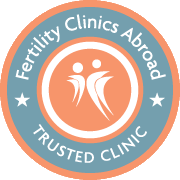Signs and symptoms after embryo transfer. What does my body tell me?
by Giorgos Chorozoglou, last updated 01 Apr 2024,
3 min read
Embarking on the journey of in vitro fertilization (IVF) is a monumental step towards fulfilling the dream of parenthood for many. The process, filled with hope and anticipation, reaches a pivotal moment during the embryo transfer. This is when the fertilized egg, now an embryo, is carefully placed into the uterus, marking the beginning of a potential pregnancy. But what happens next? How does your body respond, and what signs should you be on the lookout for? Let's explore the signs and symptoms after embryo transfer, decoding the messages your body sends during this crucial phase.
Understanding the Process
First, it's essential to understand that every woman's body is unique, and so is her response to embryo transfer. While some may experience noticeable changes, others might not feel any different. This variance is entirely normal. The symptoms post-embryo transfer are often a mix of the body's natural responses and the effects of fertility medications.
Common Signs and Symptoms
- Cramping and Spotting
Mild cramping and light spotting are among the most common signs experienced after an embryo transfer. These symptoms can be similar to those of early pregnancy or menstrual cramps. Cramping is usually a sign that the embryo is implanting itself into the uterine lining, a critical step towards a successful pregnancy. Spotting, too, can occur for the same reason and is generally not a cause for alarm. - Breast Tenderness
Hormonal changes following embryo transfer can lead to breast tenderness, making them feel sore, swollen, or more sensitive than usual. This symptom is also common in early pregnancy, attributed to the body preparing for potential motherhood. - Fatigue
Feeling unusually tired or fatigued is another sign that may indicate your body is adjusting to the changes post-embryo transfer. The emotional and physical toll of the IVF process, coupled with the effects of progesterone (a hormone administered to support the uterine lining), can contribute to this fatigue. - Nausea
Some women may experience mild nausea after embryo transfer, again due to the increased levels of hormones in the body. While it's less common than the other symptoms, it's a potential sign of early pregnancy.

What Do These Signs Mean?
It's crucial to remember that these symptoms can be indicative of both early pregnancy and the side effects of fertility medications. While they can provide hope and anticipation, they are not definitive indicators of pregnancy. The only way to confirm a pregnancy is through a blood test to measure the levels of human chorionic gonadotropin (hCG), typically conducted about two weeks after the embryo transfer.
Listening to Your Body
While monitoring these signs and symptoms, it's essential to take care of yourself both physically and emotionally. Rest when you need to, eat a balanced diet, and stay hydrated. Avoid strenuous activities or anything that could put unnecessary stress on your body during this sensitive period.
When to Contact Your Doctor
While most symptoms are mild and no cause for concern, it's important to stay in touch with your healthcare provider. Contact your doctor if you experience severe pain, heavy bleeding, or any other symptoms that worry you. They can provide reassurance, guidance, and care tailored to your specific situation.
Embracing the Journey
The post-embryo transfer period is a time of hope, anticipation, and, understandably, a bit of anxiety. Listening to your body, staying informed, and maintaining open communication with your healthcare team can help navigate this phase with confidence, so don't hesitate to contact our team of experts. Remember, every woman's journey to motherhood is unique, and experiencing or not experiencing certain symptoms doesn't determine the outcome of your IVF cycle. Stay positive, take care of yourself, and look forward to the next steps on your path to parenthood.

Giorgos Chorozoglou, MD, MSc
Giorgos is an Infertility Specialist at Newlife Center of Reproductive Medicine.










